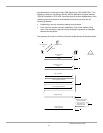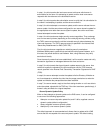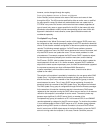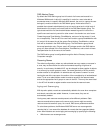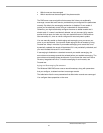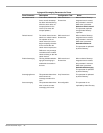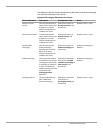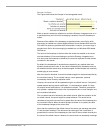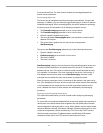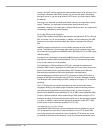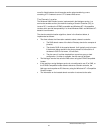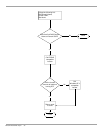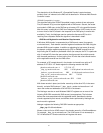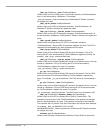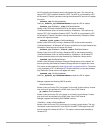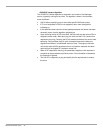
the record at that time. The time at which records are scavenged depends on
several server parameters.
Scavenging Algorithm
The server can be configured to perform scavenging automatically, using a fixed
frequency. In addition, you can manually trigger scavenging on a server to perform
immediate scavenging. When scavenging starts, the server attempts to scavenge
all primary zones and succeeds if all the following conditions are met:
• The EnableScavenging parameter is set to 1 on the server.
• The EnableScavenging parameter is set to 1 on the zone.
• Dynamic update is enabled on the zone.
• The zone parameter ScavengingServers is not specified or contains the IP
address of this server.
• The current time is greater than the value of the zone parameter
StartScavenging.
The server sets StartScavenging whenever any of the following events occur:
• Dynamic update is turned on.
• EnableScavenging is set from 0 to 1 on the zone.
• The zone is loaded.
• The zone is resumed.
StartScavenging is equal to the time that one of the preceding events occurs plus
the amount of time specified in the refresh interval for the zone. This prevents a
problem that can occur if the client is unable to refresh records because the zone
isn’t available—for example, if the zone is paused or the server is not working. If
that happens and the server does not use StartScavenging, the server could
scavenge the zone before the client has a chance to update the record.
When the server scavenges a zone, it examines all the records in the zone one by
one. If the timestamp is not zero, and the current time is later than the time specified
in the timestamp for the record plus the no-refresh and refresh intervals for the
zone, it deletes the record. All other records are unaffected by the scavenging
procedure.
Configuring Scavenging Parameters
This section discusses issues you must consider when configuring scavenging
parameters.
To ensure that no records are deleted before the dynamic update client has time to
refresh them, the refresh interval must be greater than the refresh period for each
record subjected to scavenging within a zone. Many different services might refresh
records at different intervals; for example, Netlogon refreshes records once an hour,
cluster servers generally refresh records every 15 to 20 minutes, DHCP servers
refresh records at renewal of IP address leases, and Windows 2000–based
computers refresh their A and PTR resource records every 24 hours.
Windows 2000 White Paper
27



